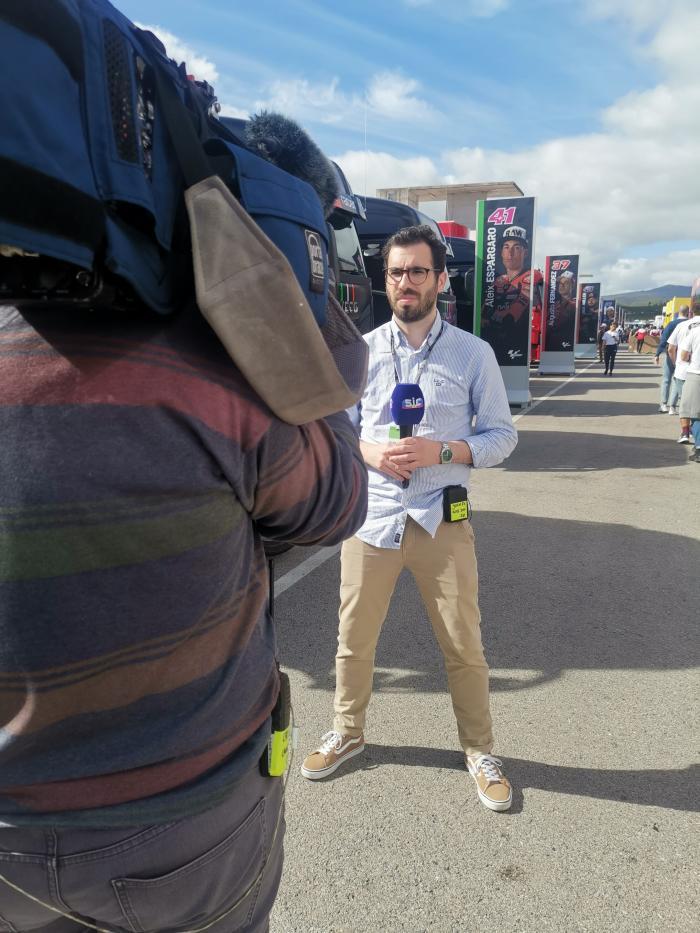Access to information has never been easier. Our mobile phones receive information all the time. Pushes are constant, and the traditional press seems to be running out of steam. There are fewer newsagents, fewer newspapers circulating, fewer people watching the news on television and radios are often only switched on when we're in traffic. It is fashionable to talk about sensations, even if the reality is different. There's often a feeling that the press is not free, but it is. At least in the more developed countries. No wonder we see that a free press also translates into a more developed society.
Freedom of the Press means having journalists with the freedom to ask questions, the freedom to scrutinise, the freedom to be critical and the freedom to tell the truth.
It is hard for me to imagine a country where this freedom does not exist. I am lucky. I was born in the 1990s and got used to seeing a journalist as the owner of the truth, the one who does not lie, who only talks about facts. Social networks have changed the paradigm, fake news and the immediacy of getting the news out first have led to a loss of rigour. In addition to the changes in the newsrooms, where the most experienced have given way to young people with less experience, in a not very careful transition, mistakes in journalism have also appeared.
As such, communication has always been a fascination for me, and after a study visit to the Faculty of Philosophy and Social Sciences, choosing the Communication Sciences degree came naturally to me. Throughout the degree I gained an even greater taste for communication, and the "bug" for journalism also came naturally. In a world where we have to question ourselves more and more, being a journalist means being able to show both sides of the story; being a journalist often means being people's eyes where those who see, hear or read us are not. Journalism is a noble profession, one that I respected a great deal before I entered it, and one that I respect even more now that I have the privilege of practising it.
The challenges are enormous, not least the funding of editorial offices. Free journalism costs money. We're used to seeing news for free on the internet, television or radio. But media companies need money to finance themselves, and since the time of plenty has passed, today we see journalism where cheap labour is used and abused. And as everything snowballs, in the end journalistic rigour is lost.
At Universidade Católica I was lucky enough to have professors who instilled in us a great deal of critical thinking and, associated with theory, being taught by journalists who were in the newsroom every day, helped me even more to realise the importance of treating well those who bring us the truth and the facts of the country and the world, every day.
So I thank them.
I also thank those who seek information every day. Our society will only evolve if our opinions are sustained, and that can only be achieved with information.
A rich society is a society that "drinks" from various opinions and factions, but an opinion is only sustained if it is informed. And an opinion is only properly informed if all the data is on the table. All information and all facts have context. That's why I like journalism. Journalism's job is to bring the facts to society.
That's why it's important to have a society that wants to be informed.
I remember a few years ago the recycling campaigns were aimed at young people. It was the children who took home the awareness of the importance of recycling. Perhaps it is important that the younger generations are increasingly reminded of the importance of being informed, of wanting to see/read/hear news. That is the only way we will have Freedom of the Press.
So, to the recent graduates who today more than ever are looking to the future without much hope, I ask you not to be discouraged. Stay optimistic. Never give up on what you really want. I know it sounds clichéd, or like something out of a self-help book, but if you do not believe in yourself, it is going to be hard for someone else to do the job for you. And while we're at it, let's put passion into everything we do. I assume that I'm a journalist by passion, I do what I like and I like living in these times where there is Freedom of the Press.




